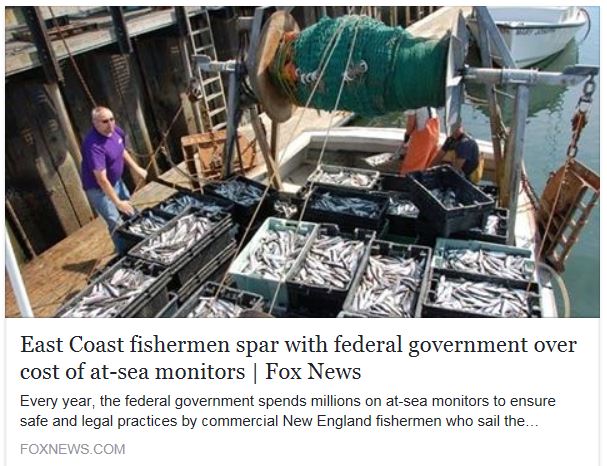Obama allows senior officials to meddle unlawfully and without accountability
By Alfred J. Lechner Jr. | ANALYSIS/OPINION:
The Obama administration repeatedly allows senior officials to unlawfully meddle in politics without being held accountable. In just the latest incident, Department of Housing and Urban Development (HUD) Secretary Julian Castro in July was found to have violated a law designed to ensure that federal officials work on behalf of all Americans, not their political party. The Hatch Act, enacted in 1939, prohibits employees in the executive branch from engaging in electoral politics when acting in their official capacity. In other words, public officials paid by taxpayers cannot use their position to influence elections.
Apparently this law is a dead letter. During a recent media interview with Yahoo News, Mr. Castro violated this law when he expressed his enthusiastic support for the election of his close friend Hillary Clinton. He touted Mrs. Clinton’s accomplishments while criticizing the Republican Party and its candidate for president, Donald Trump. At the time, Mr. Castro was reported to be on Mrs. Clinton’s short list for vice president.
To be clear: Mr. Castro appeared in his official capacity. The interview was conducted in the HUD broadcast studio in Washington D.C., he was introduced and consistently referred to as the HUD secretary, and the interview was conducted with the official HUD seal visible behind him. The interview began with a discussion of various HUD programs and initiatives.
Soon after, the U.S. Office of Special Counsel (OSC), the watchdog in charge of tracking such violations, investigated and released its findings that Mr. Castro violated the Hatch Act when he discussed politics and the upcoming general election.
At the time of the interview, Mr. Castro stated he believed he had acted appropriately. The OSC, however, questioned the credibility of that statement. Mr. Castro had received four briefings on the Hatch Act during his tenure, including one as recently as February 2016. Ethics officials at HUD also stated that they had specifically advised Mr. Castro how to handle political questions when he is speaking in his official capacity by stating that he is not there to talk about politics.
Such a high-profile violation of the Hatch Act is not a mere technical error. Condoning Hatch Act violations poses a serious threat to the legitimacy of our democratic system. And this was not the first time a cabinet member in the Obama administration has violated the Hatch Act.
In August 2012, the OSC found that Secretary of Health and Human Services, Kathleen Sebelius, also violated the Hatch Act when she delivered the keynote speech at the Human Rights Campaign Gala in North Carolina on February 25, 2012. At the event, Ms. Sebelius explicitly acknowledged she was there “to represent the president and the Obama administration.” Later in her speech she said it was “imperative” that attendees “come together here in Charlotte to present the nomination to the president, [and to] make sure that in November he continues to be president for another four years.”
These were historic violations: No Cabinet secretary in any prior administration had been found in violation of the Hatch Act since its enactment under Franklin Delano Roosevelt. Yet, neither Ms. Sebelius nor Mr. Castro suffered any consequences for abusing their positions. Ms. Sebelius went on to serve an additional two years in the president’s cabinet without any official repercussion or reprimand; Mr. Castro continues to serve as HUD secretary.
The president is the only person charged with holding cabinet officials accountable for violating the Hatch Act. His failure to sanction Ms. Sebelius sent a message that he does not take violations of the Hatch Act seriously. This could have no other effect than emboldening Mr. Castro to discuss partisan electoral politics without fear of consequences. Under the law, removal or suspension from office would be have been appropriate in his case, but the president — for the second time — chose not to impose any penalty.
In response to a question about the Ms. Sebelius Hatch Act violation, White House spokesman Eric Schultz stated that the Obama administration holds itself “to the highest ethical standards.” Those words ring hollow. Three years later, White House press secretary Josh Earnest responded to Mr. Castro’s violation stating that Mr. Castro “acknowledged the mistake he made” and that he “owned up to it.” But what really matters is whether he is held accountable, and to date, Mr. Castro has not been sanctioned for his unlawful act. Mr. Obama’s unwillingness to hold Ms. Sebelius or Mr. Castro accountable raises questions as to why other high-ranking Obama administration officials would have any incentive not to use their positions to influence elections.
This is even more concerning when you compare Mr. Castro and Ms. Sebelius’ treatment with that of lower-level government employees who violate the Hatch Act. In May, a U.S. Postal Service letter carrier settled with OSC after he displayed a congressional candidate’s sign on his work vehicle. He was subsequently suspended for five days without pay. Elsewhere, an IRS employee settled with OSC for violating the act. There is thus a double-standard for cabinet-level officials — they can apparently break the law with impunity.
The Obama administration is drawing to a close, but this pattern nonetheless sets a dangerous precedent. Our democracy is undermined when those with power and political influence are exempted from the consequences of their illegal actions. Let’s hope that years from now, the Obama administration is recalled as the low-water mark for ethics violations and accountability, not a sign of things to come.
Alfred J. Lechner Jr. is a former U.S. district judge for the District of New Jersey, and president and CEO of the Cause of Action Institute.
http://www.washingtontimes.com/news/2016/sep/20/partisan-politics-in-the-cabinet/




